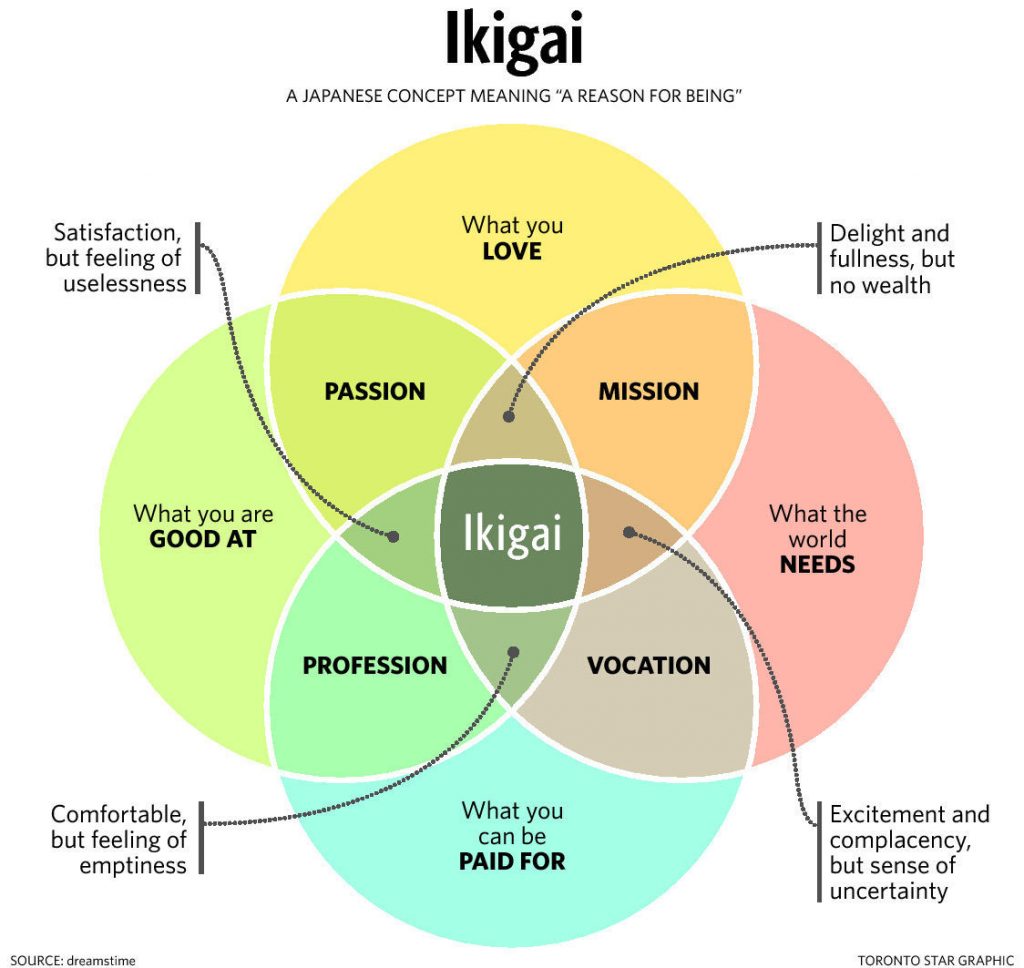What’s your reason for getting up in the morning?
Just trying to answer such a big question might make you want to crawl back into bed. If it does, the Japanese concept of ikigai could help.
Originating from a country with one of the world’s oldest populations, the idea is becoming popular outside of Japan as a way to live longer and better.
While there is no direct English translation, ikigai is thought to combine the Japanese words ikiru, meaning “to live”, and kai, meaning “the realization of what one hopes for”. Together these definitions create the concept of “a reason to live” or the idea of having a purpose in life.

Ikigai also has historic links
Gai originates from the word kai, which means shell. These were considered very valuable during the Heian period (794 to 1185), according to Akihiro Hasegawa, a clinical psychologist and associate professor at Toyo Eiwa University, adding a sense of “value in living”.
Find reason or purpose
Experts recommend starting with four questions:
What do you love?
What are you good at?
What does the world need from you?
What can you get paid for?
Finding the answers and a balance between these four areas could be a route to ikigai for Westerners looking for a quick interpretation of this philosophy. But in Japan, ikigai is a slower process and often has nothing to do with work or income.